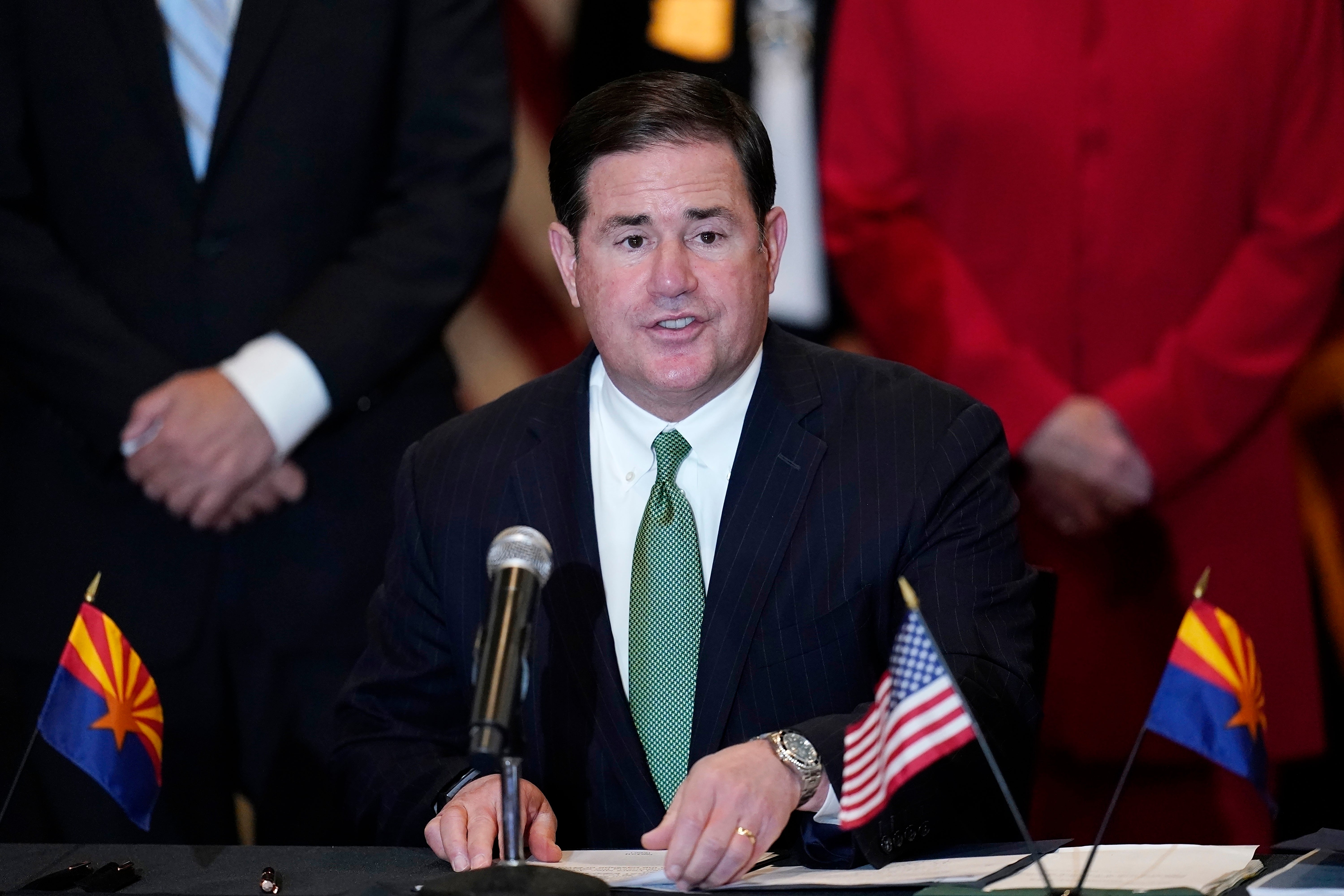Arizona Gov. Ducey hails Taiwan semiconductor investment
Arizona Gov. Doug Ducey is hailing economic and educational cooperation with Taiwan, marked by a $12 billion investment in his state by Taiwan Semiconductor Manufacturing Corp. Ducey spoke Thursday at a meeting with Taiwanese President Tsai Ing-wen, the latest of a series of visits by U.S. political leaders that have stirred the ire of China, which claims Taiwan as its own territory and condemns all official contacts between Taipei and foreign governments that recognize Beijing

Your support helps us to tell the story
From reproductive rights to climate change to Big Tech, The Independent is on the ground when the story is developing. Whether it's investigating the financials of Elon Musk's pro-Trump PAC or producing our latest documentary, 'The A Word', which shines a light on the American women fighting for reproductive rights, we know how important it is to parse out the facts from the messaging.
At such a critical moment in US history, we need reporters on the ground. Your donation allows us to keep sending journalists to speak to both sides of the story.
The Independent is trusted by Americans across the entire political spectrum. And unlike many other quality news outlets, we choose not to lock Americans out of our reporting and analysis with paywalls. We believe quality journalism should be available to everyone, paid for by those who can afford it.
Your support makes all the difference.Arizona Gov. Doug Ducey on Thursday hailed economic and educational cooperation with Taiwan, marked by a $12 billion investment in his state by Taiwan Semiconductor Manufacturing Corp.
Ducey spoke during a meeting with Taiwanese President Tsai Ing-wen, in the latest of a series of visits by U.S. political leaders that have stirred the ire of China, which claims Taiwan as its own territory and condemns all official contacts between Taipei and foreign governments that recognize Beijing.
Taiwan is a leader in the production of semiconductors, the critical chips that are used in everyday electronics and have become a battleground in the technology competition between the U.S. and China.
Arizona is also home to a base that trains Taiwan’s F-16 fighter pilots who are a major part in the island's defenses against a threatened Chinese blockade or invasion. Arizona also plans to open a state representative office in Taipei and the sides have inked an agreement on cooperation in higher education. The TSMC investment is expected to create 2,000 jobs in Arizona, with the company taking numerous future workers for training in Taiwan.
“Arizona and Taiwan have many shared economic strengths specifically in technology and advanced manufacturing industries," Ducey said.
“Both Arizona and Taiwan are global semiconductor leaders and it is in this industry where our partnership is the greatest. (The investment) has elevated the potential of what’s possible between Arizona and Taiwan," the governor said.
Neither Tsai or Ducey directly mentioned China, although in her remarks, the president indicated current events were driving expanded economic links between the sides.
“In the face of authoritarian expansionism and the economic challenges of the post-pandemic era, Taiwan seeks to bolster cooperation with the United States in the semiconductor and other high-tech industries," Tsai said.
“This would help build more secure and more resilient supply chains. We look forward to jointly producing democracy chips to safeguard the interests of our democratic partners and create greater prosperity," she said.
Close links between Taiwan and Arizona date back to the state's former senators Barry Goldwater and John McCain, conservatives who were strongly critical of Beijing.
U.S. House Speaker Nancy Pelosi's trip to Taiwan early last month made her the highest-ranking American official to visit in 25 years, prompting China to launch missiles over the island and send ships and planes across the midline of the Taiwan Strait.
The U.S. recently sent a pair of missile cruisers through the 180 kilometer (110 mile)-wide strait in a rejection of Chinese protests. Despite the lack of formal diplomatic relations, the U.S. remains Taiwan's main source of political and military support and federal law requires it to ensure the island has the ability to defend itself against Chinese threats.